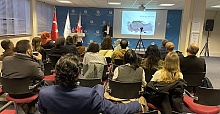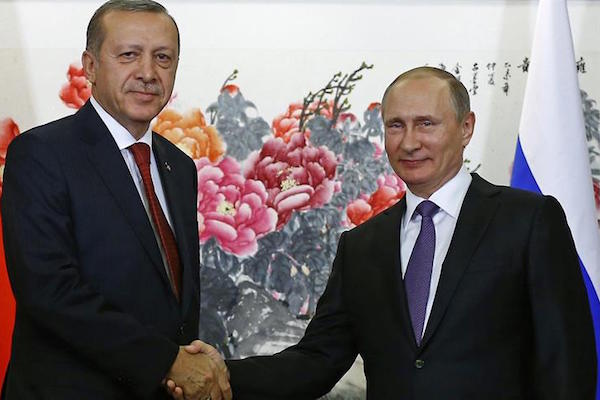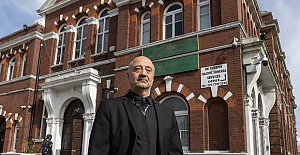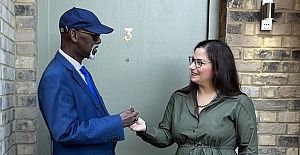Edward Rowe (Centre for Turkey Studies)-Recent foreign policy statements and moves from Turkey vis-a-vis its Euro-Atlantic partners appear to be simultaneously antagonistic and warm. On the one hand, Turkish statements have been confrontational and dismissive. Echoing President Recep Tayyip Erdoğan’s response of ‘we’ll go our way, you go yours’, Turkey’s EU Minister Ömer Çelik has warned that Ankara may cancel the Refugee Readmission Agreement with the European Union if it fails to fulfil its commitments on visa liberalisation in light of continuing pressure from Brussels over reforms to counter-terror legislation. Indeed, Turkey seems less and less interested in full EU accession after Prime Minister Binali Yıldırım announced plans for reintroducing capital punishment this week. Moreover, Turkish Defence Minister Fikri Işık has made calls to bring NATO’s Aegean counter-migration operation to an end, denying the necessity of a long-term presence of allied naval patrols near Turkey’s coast as a result of the number of refugees and migrants attempting to cross to Greece having decreased.
On the other hand however, categorically addressing recent speculation over the future of Turkey’s remaining in the alliance, of which it has been a member since 1952, a clear statement on NATO’s official website reiterates that ‘Turkey’s NATO membership is not in question’ and Turkey has continued to demonstrate firm commitment to its Western partners while working within this framework and also bilaterally. Last week for example, Turkey indicated willingness to join NATO’s plans to bolster its presence in the Black Sea region following a Brussels meeting of Defence Ministers, while President Erdoğan called for joint action with the United States when discussing international efforts to combat Islamic State in Syria.
This seemingly hot and cold stance on co-operation and alignment with its EU and NATO partners suggests that, though still dedicated to its Euro-Atlantic partners, Turkey is trying to balance this relationship with the benefits and necessities of strong ties with other global powers. This picture becomes clearer when considering Turkey’s deepening security partnership with Russia. These developments have continued since the rapprochement between the two countries that followed President Erdoğan’s visit to St Petersburg in August. Ankara has been considering the purchase of a Russian-made long-range missile defence system alongside other European and American bids. If Turkey goes for the Russian option, this would further warm relations between the two countries, and would likely ease Russian anxiety about NATO encirclement. This would be a potentially good development for Turkey’s energy security, given Russia’s critical role as an energy supplier from whom Turkey imports over half of its gas.
Turkey’s favouring balance in relations with its Eastern and Western partners is also reflected in other recent developments. Ankara has continued to pursue multilateral ties with both Beijing and Moscow in the last few months. This comes after its having conceded to NATO partners in 2015 by cancelling a deal to buy a Chinese-made missile system. In a visit to China this July, President Erdoğan called for closer relations with both states by expressing his desire for Turkey to become a full member of the transnational Shanghai Cooperation Organisation (SCO), which comprises Russia, China and the Central Asian states with the exception of Turkmenistan. This came after SCO members made a show of support for full Turkish accession to the security and economic organisation at its Tashkent summit in June.
In strengthening ties with both countries, and keeping those it already has in Europe, Turkey stands to benefit from involvement in China’s “One Belt One Road” project. This land trade route is planned to stretch from China, across Central Asia, into Turkey, then Russia, ultimately ending in the Netherlands. Participation would provide an opportunity for Turkey to stimulate its trade and transit industry both in Europe and Asia, creating new opportunities for prosperity.
Rather than shifting from West to East then, Turkey is making efforts to balance its foreign policy in order to maintain strong ties with its Euro-Atlantic partners and at the same time, reap the benefits of good relations with others in an increasingly multipolar international order, in which Washington DC, now faced with an increasingly assertive Moscow and Beijing, is no longer the sole global hegemon.



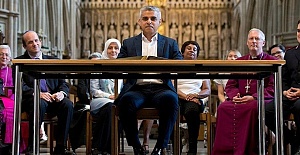 The candidates vying to be the next London mayor
The candidates vying to be the next London mayor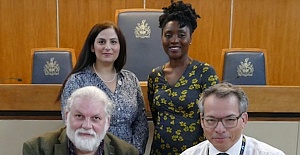 Enfield Council commits to anti-racism and diversity pledge
Enfield Council commits to anti-racism and diversity pledge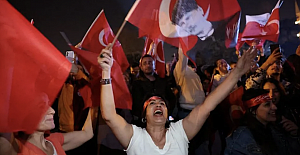 President Erdogan promised supporters his party would learn its lessons from the defeat
President Erdogan promised supporters his party would learn its lessons from the defeat Mayor of London and London Assembly elections
Mayor of London and London Assembly elections Off duty Police sergeant Eren Emin catch suspected thief while on stag do
Off duty Police sergeant Eren Emin catch suspected thief while on stag do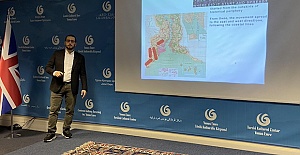 A Century of Urban Transformation, Istanbul’s Evolution
A Century of Urban Transformation, Istanbul’s Evolution Future Painters Exhibition at Tottenham Hotspur Stadium
Future Painters Exhibition at Tottenham Hotspur Stadium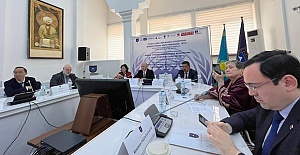 Models of Teaching International Journalism for Sustainable Development
Models of Teaching International Journalism for Sustainable Development English Premier League leaders Arsenal will visit title contenders
English Premier League leaders Arsenal will visit title contenders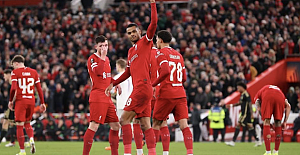 Liverpool meet Atalanta and West Ham face Bayer Leverkusen
Liverpool meet Atalanta and West Ham face Bayer Leverkusen Arsenal face Bayern Munich and Manchester City play Real Madrid
Arsenal face Bayern Munich and Manchester City play Real Madrid UK Transfer deadline day, the transfer window closes tonight
UK Transfer deadline day, the transfer window closes tonight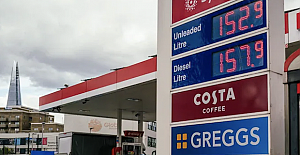 Petrol prices on UK forecourts hit 150p a litre
Petrol prices on UK forecourts hit 150p a litre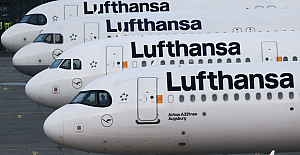 Europe's travel strikes: Flight and train disruption you can expect in April
Europe's travel strikes: Flight and train disruption you can expect in April Enfield Council website achieves digital inclusion recognition
Enfield Council website achieves digital inclusion recognition Enfield Council’s Planning Enforcement team goes from strength to strength
Enfield Council’s Planning Enforcement team goes from strength to strength



